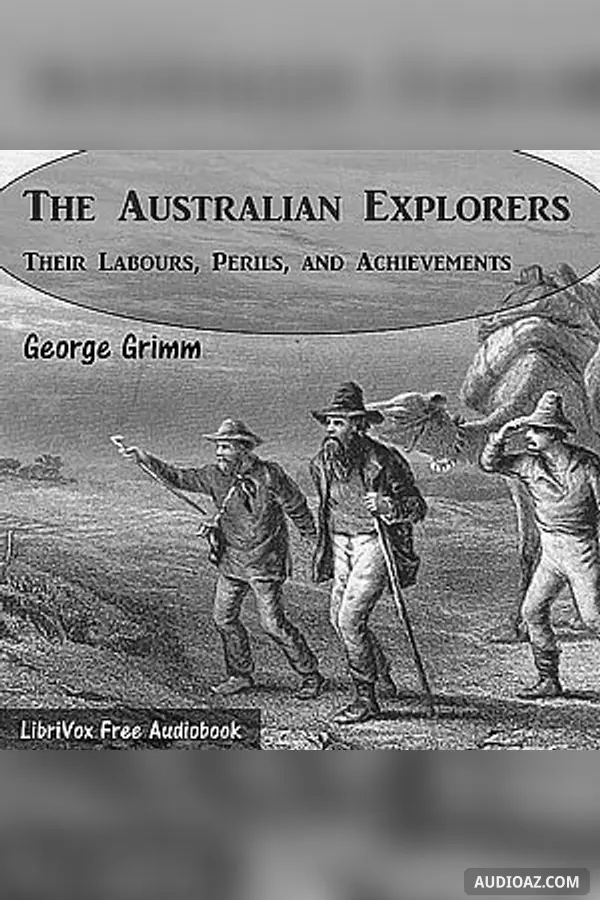
《Summa Contra Gentiles, Second Book (On Creation)》 - 免费有声读物
语言:English
1 / 101I. CONNECTION OF THE FOREGOING WITH THE SEQUEL
- 1. I. CONNECTION OF THE FOREGOING WITH THE SEQUEL
- 2. II. THAT THE CONSIDERATION OF CREATURES IS USEFUL FOR BUILDING UP OUR FAITH
- 3. III. THAT THE KNOWLEDGE OF THE NATURE OF CREATURES AVAILS FOR REFUTING ERRORS AGAINST GOD
- 4. IV. THAT THE PHILOSOPHER AND THE THEOLOGIAN TREAT OF CREATURES IN DIFFERENT WAYS
- 5. V. ORDER OF THE THINGS TO BE SAID
- 6. VI. THAT IT BECOMES GOD TO BE THE SOURCE OF BEING TO OTHER THINGS
- 7. VII. THAT IN GOD THERE IS ACTIVE POWER
- 8. VIII. THAT GOD'S POWER IS HIS SUBSTANCE
- 9. IX. THAT GOD'S POWER IS HIS ACTION
- 10. X. IN WHAT WAY POWER IS ASCRIBED TO GOD
- 11. XI. THAT SOMETHING IS SAID OF GOD IN RELATION TO CREATURES
- 12. XII. THAT RELATIONS SAID OF GOD IN REFERENCE TO CREATURES ARE NOT REALLY IN GOD
- 13. XIII. HOW THE AFORESAID RELATIONS ARE PREDICATED OF GOD
- 14. XIV. HOW THE AFORESAID RELATIONS ARE PREDICATED OF GOD
- 15. XV. THAT GOD IS TO ALL THINGS THE CAUSE OF BEING
- 16. XVI. THAT GOD BROUGHT THINGS INTO BEING OUT OF NOTHING
- 17. XVII. THAT CREATION IS NEITHER MOVEMENT NOR CHANGE
- 18. XVIII. HOW TO SOLVE THE OBJECTIONS AGAINST CREATION
- 19. XIX. THAT IN CREATION THERE IS NO SUCCESSION
- 20. XX. THAT NO BODY CAN CREATE
- 21. XXI. THAT IT BELONGS TO GOD ALONE TO CREATE
- 22. XXII. THAT GOD CAN DO ALL THINGS
- 23. XXIII. THAT GOD DOES NOT ACT OF NATURAL NECESSITY
- 24. XXIV. THAT GOD WORKS ACCORDING TO HIS WISDOM
- 25. XXV. HOW THE ALMIGHTY IS SAID TO BE UNABLE TO DO CERTAIN THINGS
- 26. XXVI. THAT THE DIVINE INTELLECT IS NOT CONFINED TO CERTAIN DETERMINED EFFECTS
- 27. XXVII. THAT THE DIVINE WILL IS NOT CONFINED TO CERTAIN EFFECTS
- 28. XXVIII. HOW THERE IS ANYTHING DUE IN THE PRODUCTION OF THINGS
- 29. XXIX. HOW THERE IS ANYTHING DUE IN THE PRODUCTION OF THINGS
- 30. XXX. HOW THERE CAN BE ABSOLUTE NECESSITY IN CREATED THINGS
- 31. XXXI. THAT IT IS NOT NECESSARY FOR CREATURES TO HAVE BEEN ALWAYS
- 32. XXXII. ARGUMENTS OF THOSE WHO WISH TO PROVE THE ETERNITY OF THE WORLD FROM GOD'S SIDE OF THE QUESTION
- 33. XXXIII. ARGUMENTS OF THOSE WHO WOULD PROVE THE ETERNITY OF THE WORLD FROM THE POINT OF VIEW OF CREATURES
- 34. XXXIV. ARGUMENTS TO PROVE THE ETERNITY OF THE WORLD FROM THE POINT OF VIEW OF THE MAKING
- 35. XXXV. SOLUTION OF THE FOREGOING ARGUMENTS, AND FIRST OF THOSE THAT WERE TAKEN FROM THE STANDPOINT OF GOD
- 36. XXXVI. SOLUTION OF THE ARGUMENTS PRODUCED ON THE PART OF THE THINGS MADE
- 37. XXXVII. SOLUTION OF THE ARGUMENTS TAKEN FROM THE MAKING OF THINGS
- 38. XXXVIII. ARGUMENTS BY WHICH SOME ENDEAVOUR TO PROVE THAT THE WORLD IS NOT ETERNAL
- 39. XXXIX. THAT THE DISTINCTION OF THINGS IS NOT FROM CHANCE
- 40. XL. THAT MATTER IS NOT THE FIRST CAUSE OF THE DISTINCTION OF THINGS
- 41. XLI. THAT THE DISTINCTION OF THINGS IS NOT ON ACCOUNT OF A CONTRARIETY OF AGENTS
- 42. XLII. THAT THE FIRST CAUSE OF THE DISTINCTION OF THINGS IS NOT THE ORDER OF SECONDARY AGENTS
- 43. XLIII. THAT THE DISTINCTION AMONG THINGS DOES NOT RESULT FROM SOME SECONDARY AGENT INTRODUCING VARIOUS FORMS INTO MATTER
- 44. XLIV. THAT DISTINCTION AMONG THINGS DID NOT RESULT FROM THE DIVERSITY OF MERITS OR DEMERITS
- 45. XLV. WHAT IS IN TRUTH THE FIRST CAUSE OF THE DISTINCTION OF THINGS
- 46. XLVI. THAT FOR THE PERFECTION OF THE UNIVERSE IT WAS NECESSARY THAT THERE SHOULD BE SOME INTELLECTUAL CREATURES
- 47. XLVII. THAT INTELLECTUAL SUBSTANCES ARE CAPABLE OF WILLING
- 48. XLVIII. THAT INTELLECTUAL SUBSTANCES ARE OF FREE-WILL IN ACTING
- 49. XLIX. THAT THE INTELLECTUAL SUBSTANCE IS NOT A BODY
- 50. L. THAT INTELLECTUAL SUBSTANCES ARE IMMATERIAL
- 51. LI. THAT THE INTELLECTUAL SUBSTANCE IS NOT A MATERIAL FORM
- 52. LII. THAT IN CREATED INTELLECTUAL SUBSTANCES THERE IS A DIFFERENCE BETWEEN BEING AND WHAT IS
- 53. LIII. THAT IN CREATED INTELLECTUAL SUBSTANCES THERE IS ACT AND POTENTIALITY
- 54. LIV. THAT COMPOSITION OF SUBSTANCE AND BEING IS NOT THE SAME AS COMPOSITION OF MATTER AND FORM
- 55. LV. THAT INTELLECTUAL SUBSTANCES ARE INCORRUPTIBLE
- 56. LVI. IN WHAT WAY IT IS POSSIBLE FOR AN INTELLECTUAL SUBSTANCE TO BE UNITED TO THE BODY
- 57. LVII. THE OPINION OF PLATO CONCERNING THE UNION OF THE INTELLECTUAL SOUL WITH THE BODY
- 58. LVIII. THAT THE NUTRITIVE, SENSITIVE, AND INTELLECTIVE FACULTIES IN MAN ARE NOT THREE SOULS
- 59. LIX. THAT MAN'S POSSIBLE INTELLECT IS NOT A SEPARATE SUBSTANCE
- 60. LX. THAT MAN DERIVES HIS SPECIES NOT FROM THE PASSIVE, BUT FROM THE POSSIBLE INTELLECT
- 61. LXI. THAT THE AFORESAID OPINION IS CONTRARY TO THAT OF ARISTOTLE
- 62. LXII. AGAINST THE OPINION OF ALEXANDER ABOUT THE POSSIBLE INTELLECT
- 63. LXIII. THAT THE SOUL IS NOT A TEMPERAMENT, AS GALEN ASSERTED
- 64. LXIV. THAT THE SOUL IS NOT A HARMONY
- 65. LXV. THAT THE SOUL IS NOT A BODY
- 66. LXVI. AGAINST THOSE WHO SAY THAT INTELLECT AND SENSE ARE THE SAME
- 67. LXVII. AGAINST THOSE WHO SAY THAT THE POSSIBLE INTELLECT IS THE IMAGINATION
- 68. LXVIII. HOW AN INTELLECTUAL SUBSTANCE CAN BE THE FORM OF THE BODY
- 69. LXIX. SOLUTION OF THE ARGUMENTS BY WHICH IT WAS PROVED ABOVE THAT AN INTELLECTUAL SLBSTANCE CANNOT BE UNITED TO THE BODY AS ITS FORM
- 70. LXX. THAT ACCORDING TO THE WORDS OF ARISTOTLE WE JUST SAY THAT THE INTELLECT IS UNITED TO THE BODY AS ITS FORM
- 71. LXXI. THAT THE SOUL IS UNITED TO THE BODY IMMEDIATELY
- 72. LXXII. THAT THE WHOLE SOUL IS IN THE WHOLE BODY AND IN EACH PART THEREOF
- 73. LXXIII. THAT THERE IS NOT ONE POSSIBLE INTELLECT IN ALL MEN
- 74. LXXIV. OF THE OPINION OF AVICENNA, WHO ASSERTED THAT INTELLIGIBLE FORMS ARE NOT PRESERVED IN THE POSSIBLE INTELLECT
- 75. LXXV. SOLUTION OF THE ARGUMENTS WHICH WOULD SEEM TO PROVE THE UNITY OF THE POSSIBLE INTELLECT
- 76. LXXVI. THAT THE ACTIVE INTELLECT IS NOT A SEPARATE SUBSTANCE BUT PART OF THE SOUL
- 77. LXXVII. THAT IT IS NOT IMPOSSIBLE FOR THE POSSIBLE AND ACTIVE INTELLECT TO CONCUR IN THE ONE SUBSTANCE OF THE SOUL
- 78. LXXVIII. THAT ARISTOTLE'S OPINION CONCERNING THE ACTIVE INTELLECT WAS NOT THAT IT IS A SEPARATE SUBSTANCE, BUT RATHER THAT IT IS PART OF THE SOUL
- 79. LXXIX. THAT THE HUMAN SOUL IS NOT CORRUPTED WHEN THE BODY IS CORRUPTED
- 80. LXXX. ARGUMENTS TO PROVE THAT THE SOUL IS CORRUPTED WHEN THE BODY IS CORRUPTED
- 81. LXXXI. ARGUMENTS TO PROVE THAT THE SOUL IS CORRUPTED WHEN THE BODY IS CORRUPTED
- 82. LXXXII. THAT THE SOULS OF DUMB ANIMALS ARE NOT IMMORTAL
- 83. LXXXIII. THAT THE HUMAN SOUL BEGINS TO EXIST WITH THE BODY
- 84. LXXXIV. SOLUTION OF THE FOREGOING ARGUMENTS
- 85. LXXXV. THAT THE SOUL IS NOT MADE OF GOD'S SUBSTANCE
- 86. LXXXVI. THAT THE HUMAN SOUL IS NOT TRANSMITTED WITH THE SEMEN
- 87. LXXXVII. THAT THE HUMAN SOUL IS BROUGHT INTO BEING THROUGH CREATION BY GOD
- 88. LXXXVIII. ARGUMENTS FOR PROVING THAT THE HUMAN SOUL IS FORMED FROM THE SEMEN
- 89. LXXXIX. SOLUTION OF THE FOREGOING ARGUMENTS
- 90. XC. THAT AN INTELLECTUAL SUBSTANCE IS UNITED AS A FORM TO NO OTHER THAN THE HUMAN BODY
- 91. XCI. THAT THERE ARE SOME INTELLECTUAL SUBSTANCES WHICH ARE NOT UNITED TO BODIES
- 92. XCII. OF THE GREAT NUMBER OF SEPARATE SUBSTANCES
- 93. XCIII. THAT THERE ARE NOT SEVERAL SEPARATE SUBSTANCES OF ONE SPECIES
- 94. XCIV. THAT THE SEPARATE SUBSTANCE AND THE SOUL ARE NOT OF ONE SPECIES
- 95. XCV. HOW WE ARE TO UNDERSTAND GENUS AND SPECIES IN SEPARATE SUBSTANCES
- 96. XCVI. THAT SEPARATE SUBSTANCES DO NOT GATHER THEIR KNOWLEDGE FROM SENSIBLES
- 97. XCVII. THAT THE INTELLECT OF A SEPARATE SUBSTANCE ALWAYS UNDERSTANDS ACTUALLY
- 98. XCVIII. HOW ONE SEPARATE SUBSTANCE UNDERSTANDS ANOTHER
- 99. XCIX. THAT SEPARATE SUBSTANCES KNOW MATERIAL THINGS
- 100. C. THAT SEPARATE SUBSTANCES KNOW SINGULARS
- 101. CI. WHETHER SEPARATE SUBSTANCES KNOW ALL THINGS AT THE SAME TIME BY THEIR NATURAL KNOWLEDGE
关于
The Summa Contra Gentiles was composed by Thomas Aquinas between 1259 and 1265, in four books broadly covering teachings on God, on Creation, on Providence, and on tenets specific to Christianity. This Summa is not to be confused with his final Summa, the Summa Theologiae. The latter is specifically "theological" and directed to a Christian audience (hence Summa "Theologica"), whereas the former, as the "Contra Gentiles" indicates, is directed toward "non-Christian" thinkers. Implicitly a defence of the Catholic Christian faith, the first three books constitute a sort of rational apology of Christian thought, where philosophical arguments are deployed to defend Christian beliefs and usually only evoke Scripture in a latter instance to show its concordance with these largely-rational conclusions; the fourth book, however, is theological in character given that its content deals primarily with topics derived from Christian revelation. Although Thomas Aquinas certainly aims to discredit pagan, Jewish, Muslim or Christian-"heretical" positions incompatible with the Catholic Christian religion in this work, at the same time he incorporates whatever is salvageable from their thought, thus often quoting in his favor the very authors he discredits on other positions: therefore the "Contra Gentiles" of this Summa is not to be understood as an outright rejection of non-Christian thought, but rather as a sort of "rational purification" unto its Catholic assimilation, in disposing open minds to revealed Christian truths. (Summary by M.S.C. Lambert, LC)
评论
成为第一个评论的人
此内容还没有任何评论。开始对话吧!
查看更多
标签: Summa Contra Gentiles, Second Book (On Creation) audio, Summa Contra Gentiles, Second Book (On Creation) - Saint Thomas Aquinas audio, 基督教 - 评注 audio, 基督教 - 其他 audio, 非小说类 audio, 宗教 audio, free audiobook, free audio book, audioaz






